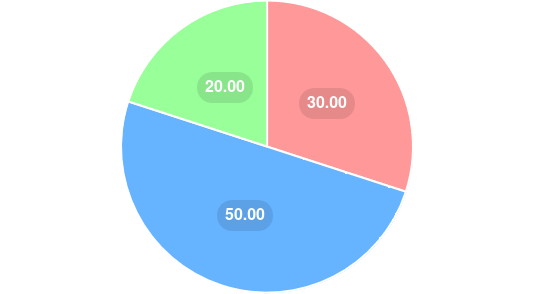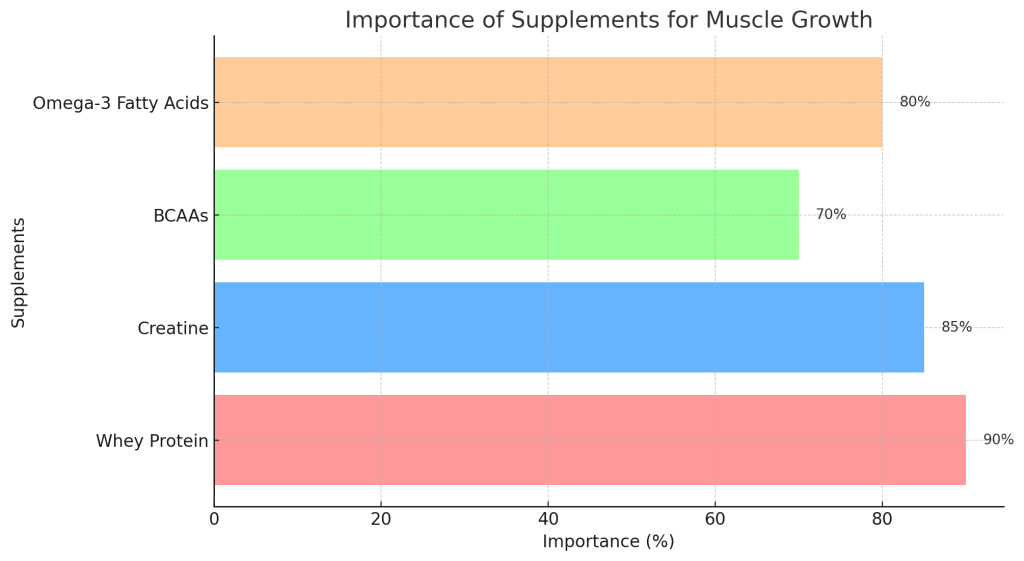Building muscle is not just about lifting heavy weights and spending hours in the gym. While intense workouts are essential, they are only part of the equation. Nutrition plays a crucial role in muscle growth, providing the necessary fuel and building blocks your body needs to repair and build muscle tissue. This guide will delve into the ultimate nutrition strategies to help you maximize your muscle gains.
1. Understanding the Basics: Macronutrients
To fuel muscle growth, you need a well-rounded diet rich in the three macronutrients: protein, carbohydrates, and fats.
Protein: The Building Block of Muscle
Protein is essential for muscle repair and growth. Aim for a protein intake of 1.2 to 2.2 grams per kilogram of body weight daily. Include a variety of protein sources like lean meats, poultry, fish, eggs, dairy, legumes, and plant-based proteins.
Carbohydrates: The Energy Source
Carbohydrates provide the energy needed for intense workouts. They replenish glycogen stores, which are crucial for muscle recovery. Focus on complex carbs such as whole grains, fruits, vegetables, and legumes. Aim for 3 to 5 grams of carbohydrates per kilogram of body weight.
Fats: Essential for Hormone Production
Healthy fats support hormone production, including testosterone, which is vital for muscle growth. Incorporate sources of unsaturated fats like avocados, nuts, seeds, olive oil, and fatty fish. Aim for fats to make up about 20-35% of your total daily caloric intake.
Here’s a pie chart illustrating the breakdown of macronutrients for muscle growth, based on the recommended proportions: 30% protein, 50% carbohydrates, and 20% fats. This visual representation helps to understand how to balance your diet to fuel your muscle gains effectively.

2. Micronutrients Matter Too
While macronutrients are crucial, micronutrients shouldn’t be overlooked. Vitamins and minerals play vital roles in muscle function, energy production, and overall health.
| Micronutrient | Function | Sources |
| Vitamin D | Supports bone health and muscle function | Sunlight, fatty fish, fortified foods |
| Magnesium | Involved in muscle contractions and protein synthesis | Nuts, seeds, leafy greens |
| Zinc | Essential for protein synthesis and testosterone production | Meat, shellfish, legumes |
| B Vitamins | Crucial for energy metabolism | Whole grains, meat, eggs, dairy |
Key Micronutrients for Muscle Growth:
- Vitamin D: Supports bone health and muscle function. Get it from sunlight, fatty fish, and fortified foods.
- Magnesium: Involved in muscle contractions and protein synthesis. Found in nuts, seeds, and leafy greens.
- Zinc: Essential for protein synthesis and testosterone production. Found in meat, shellfish, and legumes.
- B Vitamins: Crucial for energy metabolism. Found in whole grains, meat, eggs, and dairy.
3. Timing Your Nutrition
Nutrient timing can significantly impact muscle growth and recovery. Here’s how to optimize it:
Pre-Workout Nutrition:
Consume a balanced meal 2-3 hours before your workout, including protein, complex carbohydrates, and healthy fats. For example, a chicken breast with quinoa and steamed vegetables.
Post-Workout Nutrition:
After your workout, focus on protein and fast-digesting carbohydrates to replenish glycogen stores and kickstart muscle repair. A protein shake with a banana or a meal with lean protein and white rice works well.
Snacking for Muscle Growth:
Incorporate protein-rich snacks between meals to keep amino acids available for muscle repair. Greek yogurt with berries or a handful of nuts can be excellent choices.
| Activity | Start | End |
| Pre-Workout Meal | 12 | 14 |
| Workout | 15 | 16 |
| Post-Workout Meal | 16 | 17 |
| Snacking | 11 | 20 |
4. Supplements: Are They Necessary?
Supplements can complement a balanced diet but should not replace whole foods. Some beneficial supplements for muscle growth include:
- Whey Protein: Convenient source of high-quality protein.
- Creatine: Enhances strength and muscle mass.
- Branched-Chain Amino Acids (BCAAs): Supports muscle recovery.
- Omega-3 Fatty Acids: Reduces inflammation and supports overall health.

5. Which supplement should I start with?
When deciding which supplement to start with, it’s important to consider your specific goals, dietary habits, and any potential deficiencies. Here are some guidelines to help you choose:
1. Whey Protein
- Why Start with It: Whey protein is an excellent source of high-quality protein that is easily digestible and quickly absorbed by the body. It helps in muscle recovery and growth.
- Who Should Consider It: If you find it difficult to meet your daily protein needs through food alone, starting with whey protein can be beneficial.
2. Creatine
- Why Start with It: Creatine is one of the most researched supplements and has been shown to improve strength, increase lean muscle mass, and help muscles recover more quickly during exercise.
- Who Should Consider It: If your primary goal is to increase strength and muscle mass, creatine is a great supplement to start with.
3. BCAAs (Branched-Chain Amino Acids)
- Why Start with It: BCAAs can help reduce muscle soreness, decrease muscle fatigue, and prevent muscle breakdown during intense workouts.
- Who Should Consider It: If you perform a lot of endurance or high-intensity interval training (HIIT) and need extra support for muscle recovery, BCAAs are a good option.
4. Omega-3 Fatty Acids
- Why Start with It: Omega-3s have anti-inflammatory properties, support heart health, and can aid in reducing muscle soreness and improving overall recovery.
- Who Should Consider It: If you have joint issues, experience a lot of muscle soreness, or don’t consume enough fatty fish in your diet, omega-3 supplements can be very beneficial.
5. Hydration: Often Overlooked
Proper hydration is crucial for muscle function and recovery. Aim for at least 3-4 liters of water per day, more if you have intense workout sessions. Dehydration can impair muscle contractions and recovery, so keep a water bottle handy throughout the day.
| Hydration Tips |
| Aim for at least 3-4 liters of water per day. |
| Increase water intake during intense workouts. |
| Keep a water bottle handy throughout the day. |
| Monitor urine color to ensure proper hydration (light yellow is ideal). |
| Include hydrating foods like fruits and vegetables in your diet. |
6. Listening to Your Body
Everyone’s nutritional needs are different. Listen to your body and adjust your diet based on how you feel and perform. If you’re not seeing the desired results, consider consulting a nutritionist or dietitian who can tailor a plan to your specific needs.
Conclusion
Nutrition is the cornerstone of muscle growth. By focusing on a balanced intake of macronutrients, ensuring adequate micronutrients, timing your meals, and staying hydrated, you can optimize your diet to support your muscle-building goals. Remember, consistency is key, both in the gym and in the kitchen. Fuel your gains with the right nutrition, and watch your muscles grow stronger and bigger.
For more tips and personalized advice, explore the wealth of resources available at MuscleMight.net. Fuel your gains, and achieve your muscle-building goals!
